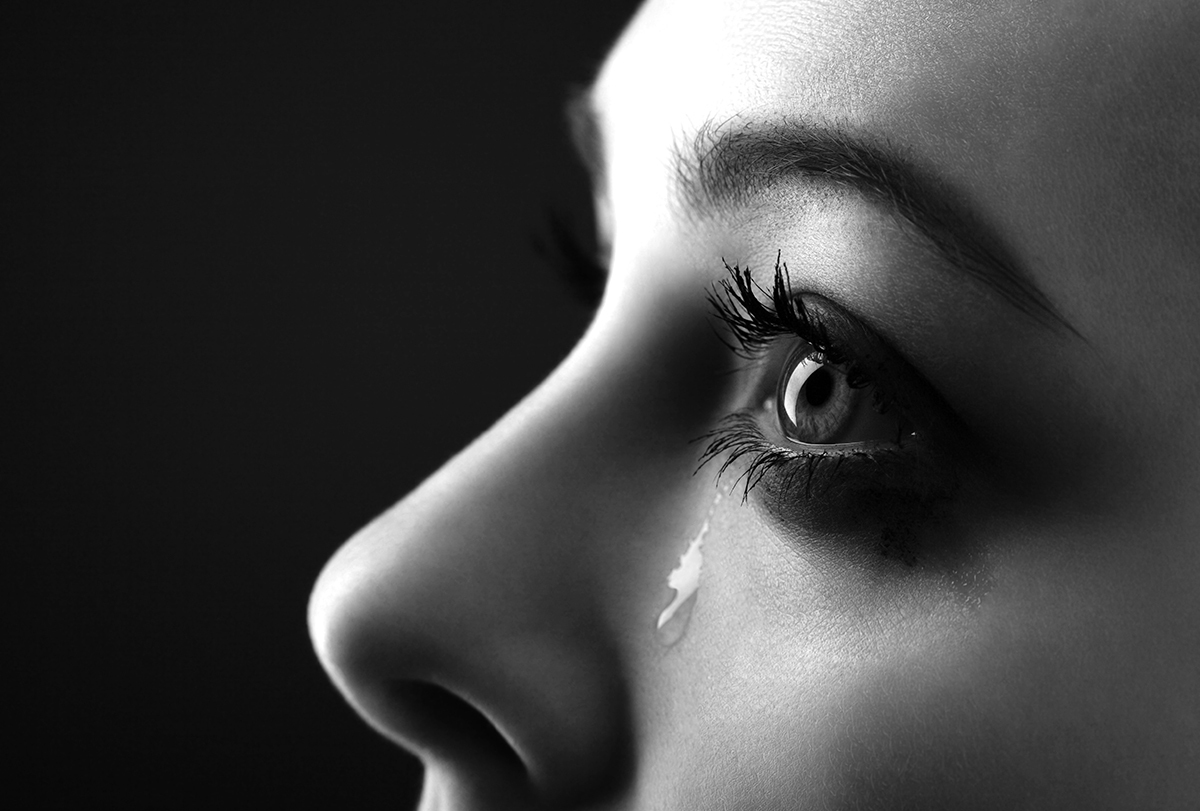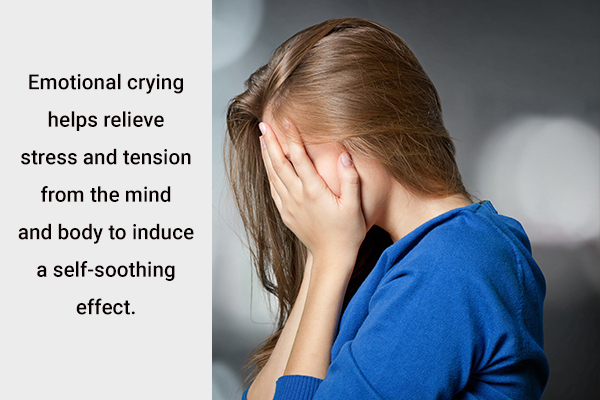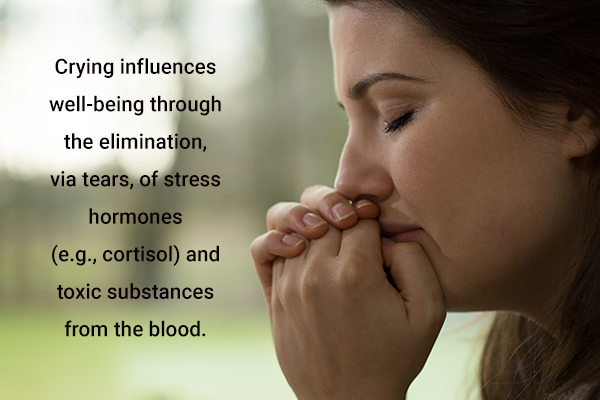In this article:
Each eye contains a lacrimal gland that secretes different types of tears (1)(2) for different purposes. The primary function of these tears is to keep the surface of your eyes clean and lubricated so you can see clearly. (3)

The overproduction of these tears leads to crying, which is a natural and healthy response to emotional and nonemotional factors. Strong feelings of joy, anger, frustration, sadness, etc., can trigger a crying spell.
If you get dust, dirt, or pungent or caustic fumes in your eyes, the lacrimal glands produce more tears to form a protective shield over the cornea, thus making your eyes water. The stream of tears helps wash out any foreign body from the eyes.
According to a biochemist named Frey, tears brought on by emotional reasons carry more protein than those formed during regular watering of the eyes. This indicates that emotional crying is part of a healing process. (4)
This article will discuss how crying can positively impact your health.
Types of Tears
The human eye produces three types of tears:
- Basal tears that keep the frontal area of the eyes moist, smooth, and clear
- Reflex tears that are triggered by physical irritants such as dust and the strong sulfuric vapors released by onions
- Emotional tears that come out in response to emotional triggers such as happiness, grief, and fear (5)
Why Crying Is Good
Crying may be associated mostly with negative emotions, but it can actually bring about some positive effects. Here are some of them:
1. Reduces stress

The therapeutic effect of a “good cry” is much talked about, but does it hold water when subjected to scientific scrutiny? It turns out crying serves as a cathartic release of pent-up emotions, both happiness and distress.
People who repress their emotions as a coping mechanism tend to accumulate stress in the body, which can gradually weaken their immune function, lead to hypertension, and affect their mental health by making them prone to anxiety and depression.
Emotional crying helps relieve stress and tension from the mind and body, providing a self-soothing effect. Thus, if you are going through a lot and feel overwhelmed, crying it out can help lighten your emotional load and relax your mind. It mainly does so by releasing certain feel-good hormones in the body called endorphins and oxytocin. (6)
Endorphins neutralize the stress hormone called cortisol and uplift your mood, while oxytocin helps calm your entire system and induce a sense of generalized well-being. (7) This does not mean that all your problems and emotional turmoil will go away, but you are likely to feel less sad, angry, hurt, or stressed after bawling your eyes out. (8)(9)
2. Promotes overall health
Crying stimulates the parasympathetic nervous system, consequently improving your blood circulation, immune functioning, digestion, oxygen absorption, and breathing rate.
3. Brings you closer to your loved ones
Crying reveals a very honest and vulnerable side of you and allows you to express and communicate with others at a deeply personal level. Plus, it invites others to reach out to you and offer support.
Thus, this simple act fosters attachment, empathy, and connection among family and friends. (1) This kind of bonding and sense of community have a positive impact on your mental and physical health.
4. Reduces the risk of eye infection
Emotional tears contain an enzyme called lysozyme, which helps fight infection-causing bacteria that may enter your eyes. Plus, crying flushes out debris, dust, or toxins that may settle on your cornea and cause irritation, damage, unclear vision, or infection. (10)
Most-Asked Questions About Crying
How does crying affect my well-being?

Crying influences your well-being through the elimination, via tears, of stress hormones (e.g., cortisol) and toxic substances from the blood. (9)
Does crying relieve dry eyes?
The most basic function of tears is to keep your ocular surface moist and smooth at all times. (3) This keeps your eyes comfortable and enables perfect vision.
If your lacrimal glands do not produce enough tears to keep the eyes properly lubricated due to a blockage or dysfunction, dry eyes occur, which are quite common among the elderly and can last for a long time.
Dryness in the eyes can cause irritation, pain, and blurred vision and even increase the risk of injury and infection. (3) Such cases require proper medical treatment, which includes eye drops that work as artificial tears to keep the eye surface lubricated. (11)
Final Word
Letting emotions and stress build up inside you can negatively impact your mind and body in multiple ways. So, if you feel like crying, it is better to give in to the impulse rather than hold it back. It is a healthy and natural thing to do. (12)
- Was this article helpful?
- YES, THANKS!NOT REALLY


